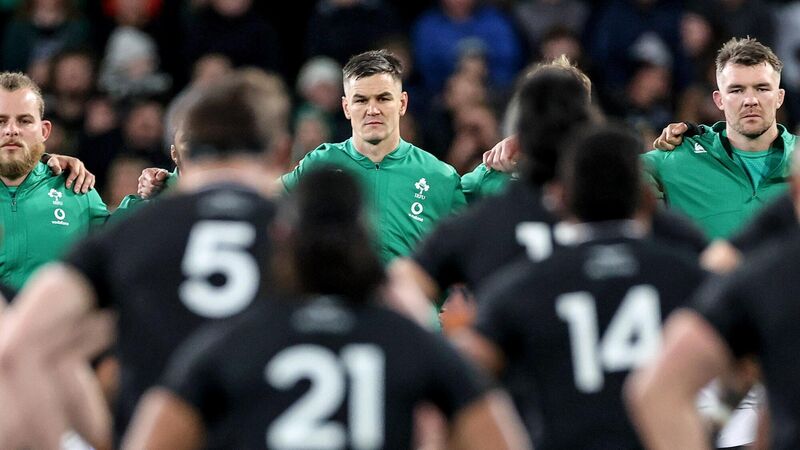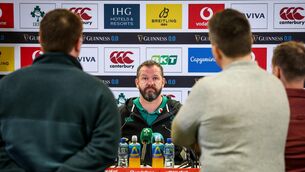Donal Lenihan: Immortality awaits...but All Blacks rarely make the same mistake twice

Eyeing their moment: Ireland's Finlay Bealham, Johnny Sexton and Peter O'Mahony during the New Zealand Haka. Pic: INPHO/Billy Stickland
To put the historical significance of tomorrow’s third test into context, only three sides have ever won a series in New Zealand against the All Blacks since records began with the visit of the British and Irish Lions in 1904.
South Africa were the first to do so with a 2-1 series win in 1937. In 12 tours, the Lions only achieved outright victory once, in the 1971 campaign with two wins, a draw and a loss sufficient to clinch the spoils. France were the last touring side to achieve this feat, winning 2-0 in 1994.










